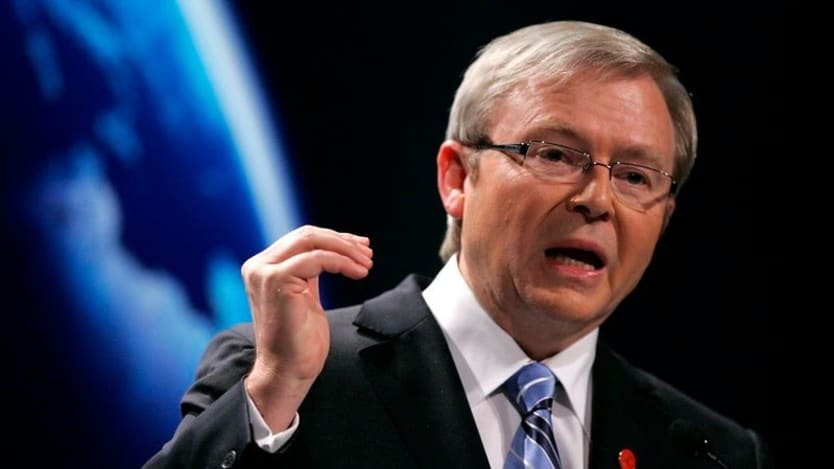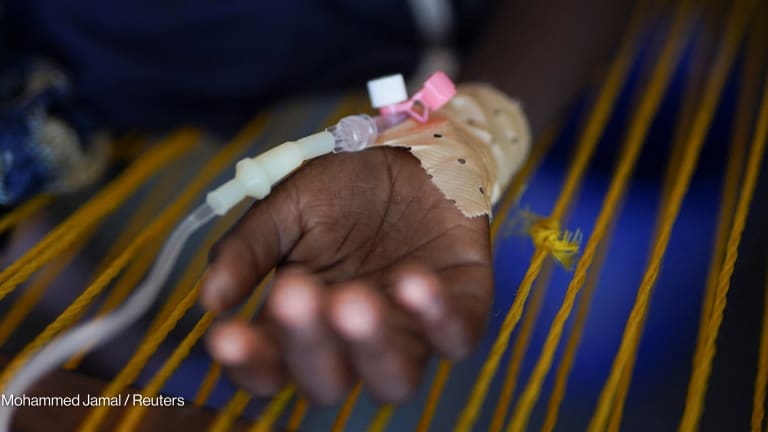
ALICANTE, Spain — “It's not just good economics, it's good politics.” That’s former Australian Prime Minister and High-Level Chair of Sanitation and Water for All Kevin Rudd’s message to finance ministers ahead of the group’s upcoming meetings for water, sanitation, and hygiene.
Held biannually by SWA — a partnership of governments, donors, civil society organizations, and other development partners “working to catalyze political leadership and improve accountability in sanitation, water and hygiene” — the high-level meetings convene finance ministers from across the world to discuss smart investments that can be made to fill the WASH financing gap.
One in 3 people worldwide still don’t have access to safe drinking water and 3 billion lack basic hand-washing facilities, yet limited funding means progress in reducing these numbers is stunted.
This year, due to COVID-19, instead of a single event, three meetings — focused on Latin America and the Caribbean, Africa, and Asia and the Pacific — will take place virtually in November and December.
While the development community would typically argue that countries should maximize investments in Sustainable Development Goal 6 — on access to water and sanitation for all — because it’s inherently a good thing to do, Rudd believes the argument that needs to be made is that it's in governments’ political interest.
“WASH projects make for good politics at the local, regional, and national level. These are areas where you can deliver to local communities and it’s therefore a good news story for finance ministers, prime ministers, presidents, and sector ministers as they seek their own reelection,” he said.
Increased access to WASH can lower health care costs by reducing waterborne diseases and lead to greater productivity and contributions to the economy by eliminating the hours spent collecting water.
“What you want … is someone to walk in the door and say: ‘This is how we can make it work for you.’”
— Kevin Rudd, former Australian prime ministerRudd, who grew up on a farm in rural Australia that didn’t have a connection to the town’s water or sewerage system, stepped away from politics in 2013. In 2015, he was appointed as chair of SWA and president of the Asia Society Policy Institute.
Rudd’s hope is that the upcoming meetings will see half a dozen countries become “product champions of creative financing of WASH projects” so that there are more examples of how improved WASH can be achieved in a range of circumstances.
“The government of India under Prime Minister [Narendra] Modi, as far as sanitation is concerned, has demonstrated that it's good politics, that it's good economics,” Rudd said. The country has shown its approach is worthy of emulation, he added.
Although there is debate over the validity of figures, last year, the country announced it was open-defecation-free following the prime minister’s Swachh Bharat (Clean India) campaign. A mixture of government, private sector, and development community resources were mobilized to fund the effort.
This and other countries' tried and tested creative financing methods — such as Costa Rica’s wastewater discharge environmental fee, Cambodia's sanitation development impact bond, and Kenya’s credit rating for utilities scheme — are detailed in a handbook for finance ministers released by SWA last month.
Spearheaded by Rudd, the book offers recommendations on how to make the case for increased WASH investment to country leaders and implement creative financing solutions.
As a leader, the last thing you want is to have well-meaning NGOs tell you to do this because it's good, Rudd explained. “What you want … is someone to walk in the door and say: ‘This is how we can make it work for you.’ That's what the finance minister's handbook is all about.”








